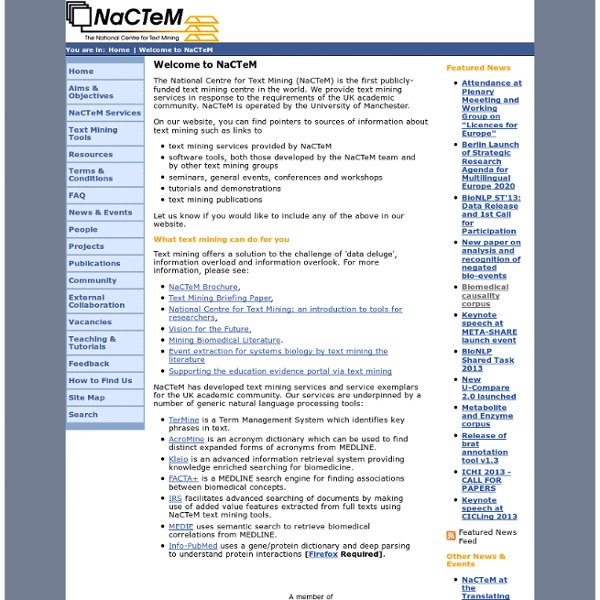



15 Top Search Engines For Research After hours spent scrolling through Google and pulling up endless clickbait results, you’re frustrated with the internet. You have a paper to write, homework to do and things to learn. You know you won’t get away with citing Wikipedia or Buzzfeed in your research paper. With so many resources online, it’s hard to narrow it down and find ones that are not only reliable and useful, but also free for students. 15 scholarly search engines every student should bookmark 1. Google Scholar was created as a tool to congregate scholarly literature on the web. 2. Google Books allows web users to browse an index of thousands of books, from popular titles to old, to find pages that include your search terms. 3. Operated by the company that brings you Word, PowerPoint and Excel, Microsoft Academic is a reliable, comprehensive research tool. 4. 5. Science.gov is operated and maintained by the Office of Science and Technical Information, the same department that collaborates on WorldWideScience.org.
Automatic summarization Methods[edit] Methods of automatic summarization include extraction-based, abstraction-based, maximum entropy-based, and aided summarization. Extraction-based summarization[edit] Two particular types of summarization often addressed in the literature are keyphrase extraction, where the goal is to select individual words or phrases to "tag" a document, and document summarization, where the goal is to select whole sentences to create a short paragraph summary. Abstraction-based summarization[edit] Extraction techniques merely copy the information deemed most important by the system to the summary (for example, key clauses, sentences or paragraphs), while abstraction involves paraphrasing sections of the source document. While some work has been done in abstractive summarization (creating an abstract synopsis like that of a human), the majority of summarization systems are extractive (selecting a subset of sentences to place in a summary). Maximum entropy-based summarization[edit]
Make Any Dead URL Work Again | DeadURL.com Text mining A typical application is to scan a set of documents written in a natural language and either model the document set for predictive classification purposes or populate a database or search index with the information extracted. Text mining and text analytics[edit] The term text analytics describes a set of linguistic, statistical, and machine learning techniques that model and structure the information content of textual sources for business intelligence, exploratory data analysis, research, or investigation.[1] The term is roughly synonymous with text mining; indeed, Ronen Feldman modified a 2000 description of "text mining"[2] in 2004 to describe "text analytics."[3] The latter term is now used more frequently in business settings while "text mining" is used in some of the earliest application areas, dating to the 1980s,[4] notably life-sciences research and government intelligence. History[edit] Text analysis processes[edit] Applications[edit] Security applications[edit] Software[edit]
15 Great Mindmapping Tools and Apps Mindmapping is the process of drawing up diagrams that show relations between various ideas, tasks or information. For many of us this shows to actually be a way of taking notes that can be more useful than just writing down keywords or sentences like we do on a to-do list. By drawing mind maps you actually visualize your tasks and how each task can influence each other in a better way, making your brain remember more easily and/or come up with new ideas. The Tools There are various tools for mindmapping out there, both free and paid versions. The ones that require any installation, can be run on all platforms that support Java unless something else is specified. Freemind ↓ I found the application quick to install and very easy to understand, – which is probably why it is one of the more popular. You can download Freemind here. Xmind ↓ Xmind has a more professional business-like look compared to FreeMind. You can download Xmind here. Bubbl.US ↓ Web application. MindMeister ↓ Freeplane ↓ Bookvar ↓
30+ Mind Mapping Tools We all need to organize our thoughts sometimes, and there seems to be no better way to do it than in a visual fashion. We've got 30+ mind mapping tools to help you do just that. And since we know some of you are on a budget, we've got free and paid suggestions for you. Don’t forget to check out our post where you can suggest future toolbox topics! Free Bubbl.us - A flash based brainstorming tool that you can share with others and also embed in to your site. Cayra.net - A desktop-only app that runs on Windows XP or Vista. CmapTools - Free to universities, students, federal employees, and individuals for personal use. CompendiumInstitute.org - A free mind mapping and brainstorming tool from the Open University. DebateMapper.com - A bit of a different mapper in that it focuses on mapping out debates, whether they be political or business. Gliffy.com - Draw & share all sorts of diagrams and mind maps. MindPlan.com - Free for personal use. RecallPlus.com - Geared towards students. See also:
Yourwebsite.com Seeks Seeks is a websearch proxy and collaborative distributed tool for websearch. Content Seeks code provides: a web proxy,a websearch meta search engine that aggregates results and ranks them based on consensus.a plugin system and a set of default plugins, including websearch and ad blocking plugins.a P2P collaborative filter that enables decentralized collaborative searching and sharing. Installation Dependencies: libcurllibxml2libpcretokyo cabinetprotocol bufferslibevent (optional, 2.x preferred)opencv (optional)docbook2x-man (optionnal) From the root directory, run . Compilation options can be listed with . Running Seeks This is an early version of Seeks, it is recommended your run it from the repository you compiled it from. cd src . see . For example, by default seeks does not run as a daemon. Other important options can be modified in the configuration file, src/config By default, seeks runs as proxy on the local machine (127.0.0.1) on port 8250. Troubleshooting